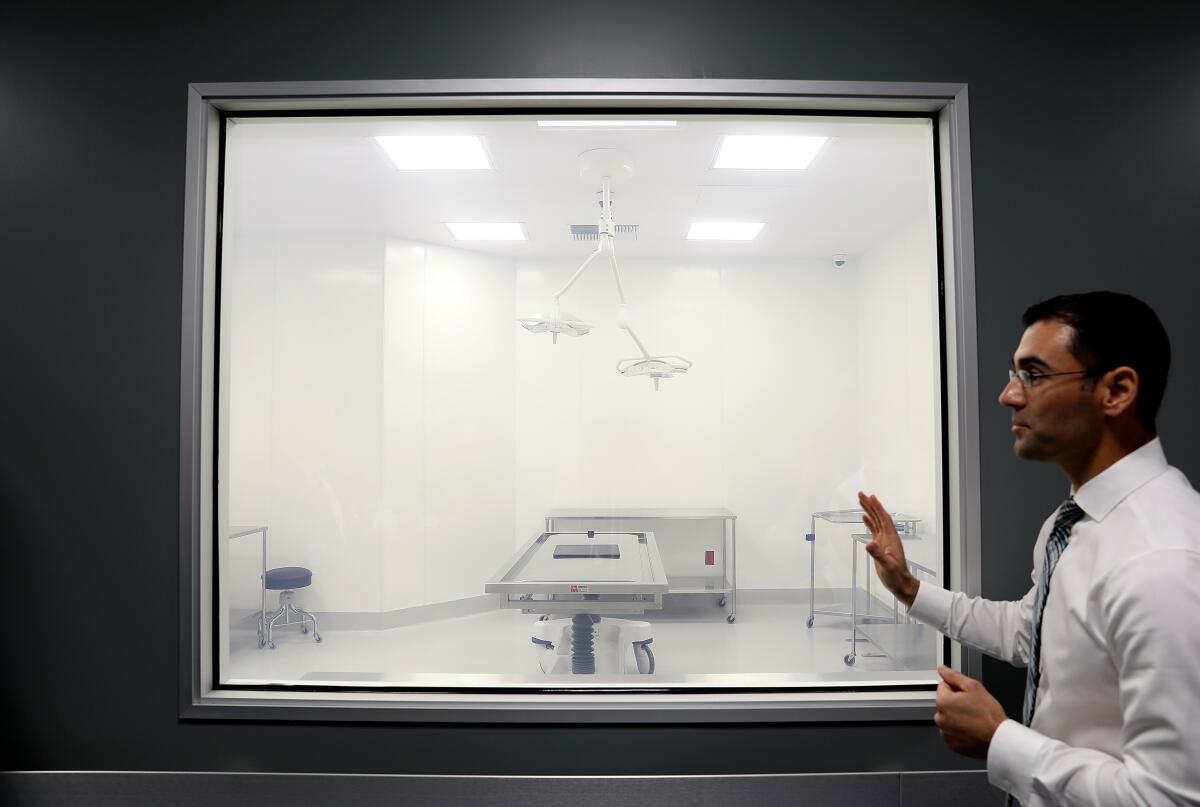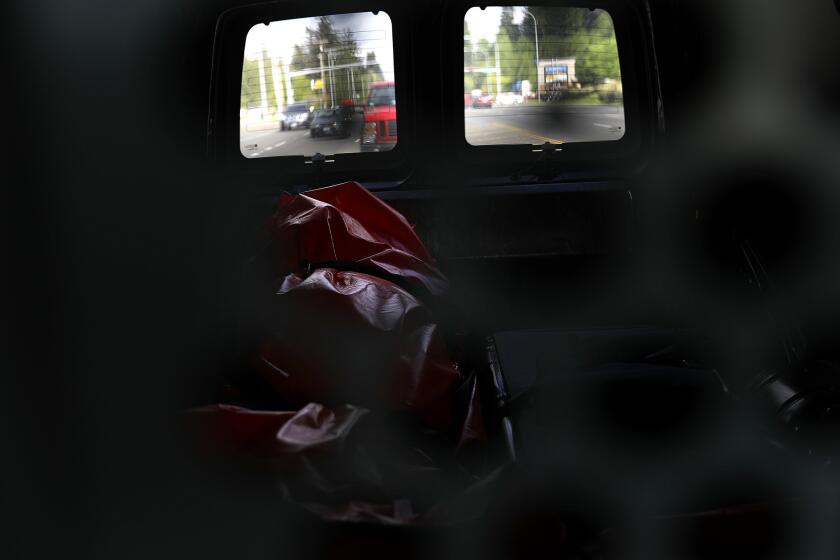County supervisors to examine body part harvesting in the morgue after Times investigation

The Los Angeles County Board of Supervisors ordered coroner officials on Tuesday to write an in-depth report on the impacts of allowing a large nonprofit company to procure bones, skin and other parts from bodies in the morgue.
The supervisor’s vote came after The Times reported earlier this month that it had found dozens of death investigations across the country, including many in L.A. County, that had been complicated or delayed by the procurement of tissues or organs before the coroner’s autopsy.
The motion was proposed by Supervisor Hilda Solis, who said the coroner’s responsibility to determine the cause of death was crucial to court cases, to prevent similar deaths in the future and to provide answers to “grieving loved ones.”
“While organ and tissue donation is invaluable, saves lives, and improves the quality of lives,” Solis said, “it is important to ensure that it does not interfere with death investigation services” provided by the coroner.
Companies that harvest human organs, bones and other parts have moved into government morgues across the country to gain access to more bodies.
Under the motion, county counsel and coroner officials must complete a report within 90 days that examines the past and current practices in the morgue as California has allowed procurement companies like OneLegacy to recover tissues or organs from deceased donors whose deaths fall under the jurisdiction of the coroner.
Tom Mone, chief executive of the Los Angeles company, previously told The Times that he had received “no references to problems with autopsies” from medical examiners in Los Angeles and the six other Southern California counties where the company operates. He said OneLegacy had gained permission from coroner officials for the procurements.
Mone declined to comment Tuesday.
Under state law, the coroner must investigate all sudden and unexpected deaths, including those from possible homicides, accidents, suicides and drug overdoses.
Coroner officials did not speak at the meeting. Jonathan Lucas, the county’s chief medical examiner-coroner, previously told The Times that he believed his office had been able to use hospital records and other evidence to answer any questions left by the procurement of tissues or organs. He said he did not believe that any criminal investigation or cause-of-death finding had been impeded by procurements.
The Times stories reported that a review of written autopsy reports showed instances where county pathologists and death investigators described potential evidence lost because of the procurement of organs or tissues.
About a decade ago, the human tissue procurement industry helped to write legislation and get it passed in most states that said coroners must “cooperate” with the companies to “maximize” the number of organs and tissues procured from bodies in the morgue. The law passed in California in 2007 and became effective in 2008.
As a result of the laws, procurement companies have moved their operations inside many government morgues across the country.
According to the OneLegacy’s contract with L.A. County, procurement teams must pass background checks to work inside the morgue. They also have access to coroner case files and to the morgue’s database to find “prospective decedent donors.”
More to Read
Inside the business of entertainment
The Wide Shot brings you news, analysis and insights on everything from streaming wars to production — and what it all means for the future.
You may occasionally receive promotional content from the Los Angeles Times.












